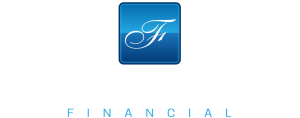Debt Relief Programs:
An In-Depth Analysis of Ways National Fidelity Financial Can Help
If your business is encountering financial difficulties or you’re grappling with personal unsecured debt, our team of experts is ready to provide assistance. National Fidelity Financial boasts a proven record of aiding individuals and business owners in effectively managing their debt, securing crucial unsecured loans, and resolving longstanding financial obligations. If you find yourself in need of financial support, reach out to us without hesitation today.
The burden of debt can often feel like a heavy weight dragging us down, particularly when interest starts accumulating at an overwhelming rate. Whether it’s a substantial amount of credit card debt, lingering student loans, or a mortgage that’s consuming a significant portion of your income, debt can result in heightened levels of stress and anxiety. In such situations, many individuals explore debt relief programs as a potential solution to alleviate their financial strain. What exactly are debt relief programs? How do they operate? And are they suitable for everyone? This article endeavors to address these questions, offering insights into the advantages, disadvantages, and alternatives to debt relief programs.

WHAT ARE DEBT RELIEF PROGRAMS?
Debt relief programs are services or strategies aimed at helping individuals reduce or eliminate their debt. These programs are usually facilitated by companies, nonprofit organizations, or government agencies that specialize in debt management. The goal is to negotiate with creditors to reduce the total amount owed, lower interest rates, and create a more manageable repayment plan for the debtor.
TYPES OF DEBT RELIEF PROGRAMS
- Debt Consolidation: This involves taking out a new loan to pay off multiple debts. The advantage here is that you end up with one manageable monthly payment at a lower interest rate.
- Debt Settlement: In this case, a debt settlement company negotiates with your creditors to lower the total amount you owe, usually by convincing them that it’s better to get something rather than nothing if you default.
- Credit Counseling: Here, a certified credit counselor reviews your financial situation and offers personalized advice, which often includes a Debt Management Plan (DMP) to make repayments more manageable.
- Bankruptcy: A legal process where a court takes over your financial affairs. All or most debts are forgiven, but this comes with severe long-term consequences for your credit score.
- Government Programs: In certain cases, especially with student loans, the government offers relief programs like income-driven repayment plans and loan forgiveness.
Advantages of Debt Relief Programs
REDUCED FINANCIAL STRAIN
One of the most significant benefits is the reduction in the overall financial burden. Lowering the monthly payments or reducing the total debt owed can provide immediate relief.
SIMPLIFIED PAYMENTS
Debt consolidation methods aim to simplify your finances by amalgamating multiple payments into a single, manageable one.
LOWER INTEREST RATES
Many debt relief options, especially debt consolidation, aim to secure a lower interest rate for the debtor, thereby reducing the total repayment amount.
Drawbacks and Risks
IMPACT ON CREDIT SCORE
Almost all debt relief methods have a negative impact on your credit score, either temporarily or permanently.
FEES AND COSTS
Many debt relief services charge upfront fees or take a percentage of the debt saved, which can be quite substantial.
SCAMS AND FRAUD
The debt relief industry is ripe for scams. Companies may promise more than they can deliver, leaving you in a worse situation than before.
ALTERNATIVES TO DEBT RELIEF PROGRAMS
- Personal Loans: Taking out a personal loan with a lower interest rate to pay off high-interest debt.
- Home Equity Loans: If you own property, you can use it as collateral to secure a loan to pay off your debts.
- DIY Methods: Strategies like the “Snowball” or “Avalanche” methods focus on paying off debts in a specific order to reduce interest payments.
- Negotiating Directly with Creditors: Sometimes, a simple call to your creditor can lead to modified payment plans or reduced interest rates.
Call National Fidelity Financial Today at 1-877-418-0042
Debt relief programs can serve as a lifeline for those drowning in debt, but they are not without risks and drawbacks. Before choosing any debt relief option, it’s crucial to thoroughly research and consider the implications, particularly the impact on your credit score and potential fees.
Consulting with financial experts, lawyers, and certified credit counselors can provide additional insights into the best strategy for your situation. If managed wisely, debt relief programs can offer a path to financial freedom and a future unburdened by debt.
By understanding the intricacies and potential pitfalls and with the help of National Fidelity Financial, you can make an informed decision that is most suitable for your unique circumstances, giving you the best chance to regain financial stability.
RELATED INFORMATION:
Debt Relief Programs – Debt Relief Solutions – Best Debt Relief – Debt Relief Lawyers
